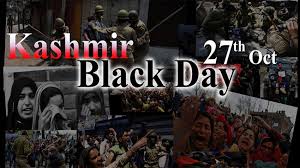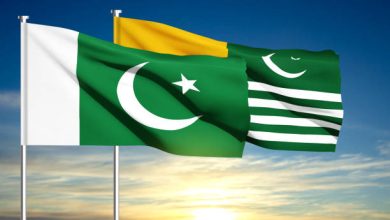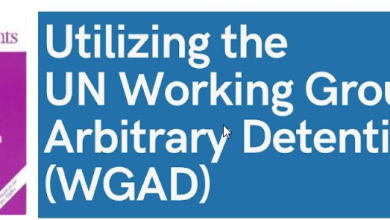
 The date October 27th is forever imposed as the “Black Day” in the collective memory of Kashmiris. This day marks more than simply another day in the calendar; it is a sad memorial of a crucial event that altered Kashmir’s history forever. However, what makes this day so important, and why, even decades later, does it still cast a long shadow over the area?
Imagine waking up one morning to find your homeland suddenly thrust into a whirlwind of conflict, your future hanging in the balance. This was the reality for Kashmiris on October 27, 1947. As we delve into the events of that fateful day and its far-reaching consequences, we’ll uncover a complex web of invasion, geopolitical maneuvering, and human struggle that continues to shape the region.
The date October 27th is forever imposed as the “Black Day” in the collective memory of Kashmiris. This day marks more than simply another day in the calendar; it is a sad memorial of a crucial event that altered Kashmir’s history forever. However, what makes this day so important, and why, even decades later, does it still cast a long shadow over the area?
Imagine waking up one morning to find your homeland suddenly thrust into a whirlwind of conflict, your future hanging in the balance. This was the reality for Kashmiris on October 27, 1947. As we delve into the events of that fateful day and its far-reaching consequences, we’ll uncover a complex web of invasion, geopolitical maneuvering, and human struggle that continues to shape the region.
The 27th of October is a significant date in Kashmiri history, representing a turning point that influenced the future of the area for many years to come. The start of an extended conflict and territorial dispute is deeply rooted in the collective memory of Kashmiris. Indian attack on Kashmir on October 27, 1947. The Kashmiri people were incensed. They desired independence and self-determination. To resist Indian military aggression people Jammu and Kashmir started a valiant struggle and the land we call Azad Jammu and Kashmir was liberated from Dogra forces and Indian aggression.
Following the events of 27th October 1947, India approached to United Nations with a fake instrument of accession.
In 1948, the UN Security Council passed Resolution 47, which called for a ceasefire between India and Pakistan, Withdrawal of , forces and a free and impartial plebiscite to determine Kashmir’s future. This resolution laid the groundwork for subsequent UN involvement in the region.
Despite the UN’s efforts, the proposed plebiscite has never taken place due to various factors as India and Pakistan couldn’t agree on the sequence and there was Cold war politics going on that complicated the issue.
While the plebiscite remains unimplemented, the UN continues to monitor the situation through:
* The United Nations Military Observer Group in India and Pakistan (UNMOGIP)
* Periodic reports and discussions in the Security Council
* Calls for dialogue and peaceful resolution of the conflict
The UN’s involvement in Kashmir underscores the international dimension of the conflict and the complexity of finding a resolution that satisfies all parties involved.
The ongoing conflict in Kashmir has led to severe human rights violations and a devastating humanitarian crisis. This situation has deeply affected the lives of Kashmiri civilians, leaving lasting scars on the region’s population.
Four forced migration took place from 1947 to 1989 from Indian occupied Kashmir to Azad Kashmir and Pakistan.The events that took place soon after 27 Oct, 1947 saw the worst kind of bloodshed called Jammu carnage or genocide wherein Dogra forces and Hindu extremists killed over two and half million Kashmiri Muslims and double the number were forced to migrate.
Indian intransigence and its military repression and denial of right to self-determination led to regime of human rights violations from extrajudicial killings, enforced disappearances, mass rape and sexual violence, harassment, arbitrary detention and other human rights violations like torture and inhuman and degrading treatment.
The events of 27th October in Kashmir have had far-reaching consequences that extend beyond the immediate borders of the disputed territory. The impact on the region has been profound, affecting various aspects of geopolitics, economics, and social dynamics. The Kashmir conflict has been a major source of instability in South Asia. The tension between India and Pakistan over Kashmir has led to three full-scale wars, numerous border skirmishes, and Constant military buildup along the Line of Control (LOC). The resolution of the Kashmir conflict could pave the way for greater regional cooperation and economic integration, benefiting not just India and Pakistan, but the entire South Asian region.
.The demographic composition of Kashmir has undergone significant shifts since 1947. These changes have been driven by several factors like Migration patterns, Forced displacements, Government-sponsored settlement programs. The disputed status of Kashmir has led to heavy militarization, transforming the region into one of the most heavily militarized zones in the world.
As we reflect on the events of 27th October and their far-reaching consequences, it becomes evident that the Kashmir issue remains one of the most complex and enduring geopolitical challenges of our time. The day marked a turning point in the region’s history, shaping decades of conflict, human suffering, and international tension. The ongoing dispute has had profound impacts on Regional stability, Indo-Pakistan relations, Human rights situation, Economic development and International diplomacy. Despite numerous attempts at resolution, a lasting solution remains elusive. The international community’s role in addressing this issue is crucial, yet often falls short of meaningful action.
Moving forward, it is imperative that all parties involved should prioritize peaceful dialogue and negotiations, Address human rights concerns, Consider the aspirations of the Kashmiri people, Engage in confidence-building measures and Seek innovative solutions beyond traditional paradigms. The path to resolution may be long and arduous, but it is essential for the stability and prosperity of South Asia. As we commemorate the Black Day, let it serve as a reminder of the urgent need for peace, justice, and reconciliation in Kashmir.
Muhammad Abdullah is a final-semester student of BS International Relations at Iqra University Islamabad and currently intern at KIIR








